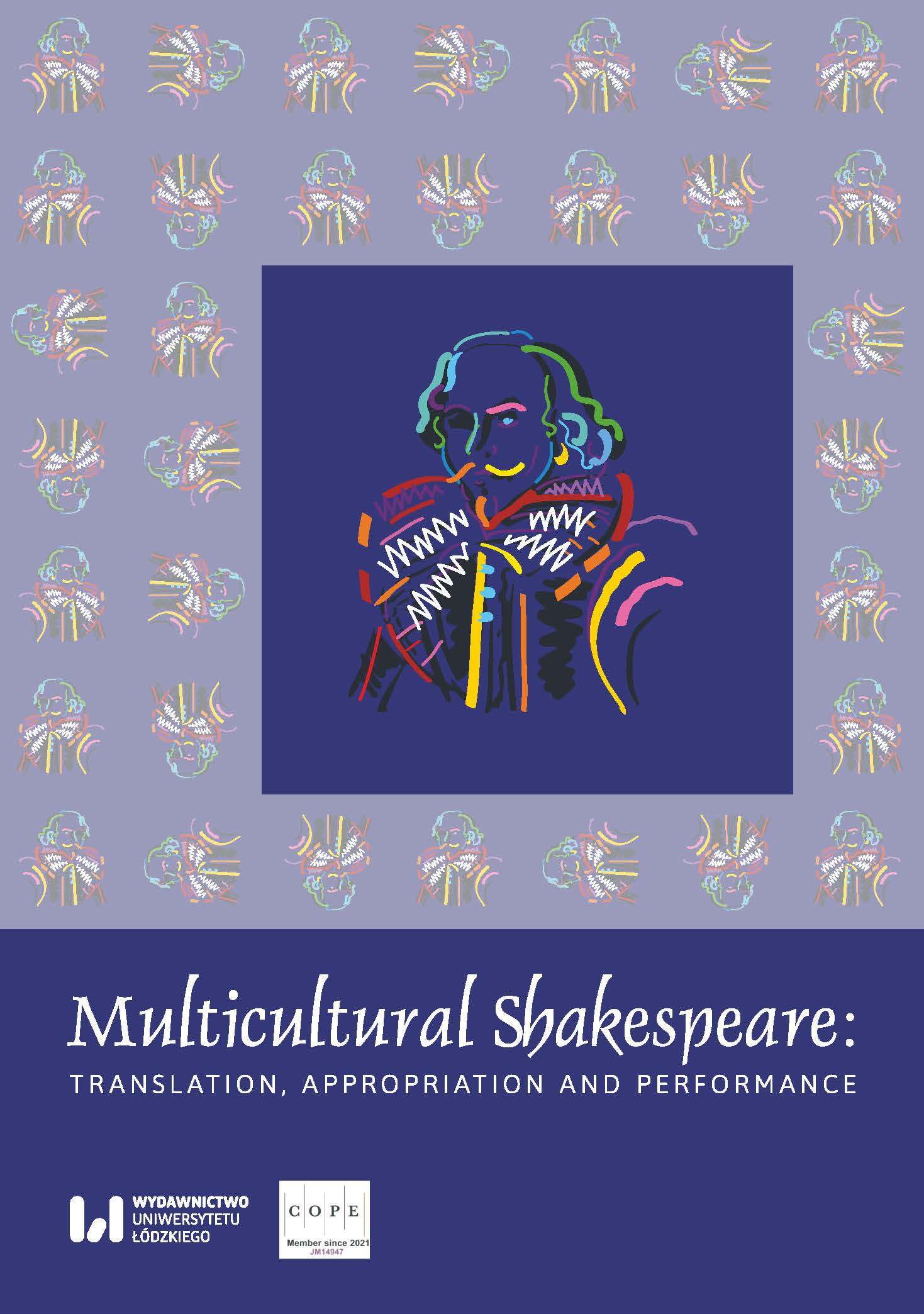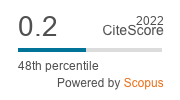Passion and Politics in Diego de Brea and Jakub Čermák’s "Edward II": Marlowe’s Controversial History on Czech Stages
DOI:
https://doi.org/10.18778/2083-8530.28.12Keywords:
Christopher Marlowe, 'Edward II', Czech Republic, Slovenia, Diego de Brea, Jakub Čermák, Elizabethan theatre, LGBT theatre, queer theatreAbstract
The present article outlines the stage history of Christopher Marlowe’s history Edward II on Czech stages, focusing chiefly on how the respective directors approached the titular character of Marlowe’s play and his sexuality. The study focuses on two post-2000 productions of the play: Diego de Brea’s Edvard Drugy for the Slovenian National Theatre, which toured to the 16th “Divadlo” International Theatre Festival in Pilsen, West Bohemia, in 2008; and Jakub Čermák’s production of Edvard II. for the independent Czech theatre company “Depresivní děti touží po penězích” (Depressive Children Yearn for Money) that premiered in 2023 in Prague. Since for both Czechs and Slovenians, King Edward II is a minor figure of English history and Elizabethan history plays are generally less appealing to them than other genres, both the directors sideline the political dimension of the story to fully explore the issue of social and sexual norms and relate it to current social and cultural discussions both in the West and the former Eastern Bloc. Stressing the motif of social and sexual otherness even more bravely than most recent Western productions, de Brea and Čermák offered not only valuable contributions to both local and global reception of Marlowe’s Edward II, but also raised the visibility of LGBT theatre in a region where it has only a modest history and tradition.
Downloads
References
Benediktová, Jana. Queer král Edvard II. nechce být na divadle za slabého. 17 June 2023. Česká televize. https://ct24.ceskatelevize.cz/kultura/3594043-queer-kral-edvard-ii-nechce-byt-na-divadle-za-slabeho Accessed 2 July 2023.
Google Scholar
Berek, Peter. “Tamburlaine’s Weak Sons: Imitation as Interpretation Before 1593.” Renaissance Drama (New Series) 13 (1982): 55-82.
Google Scholar
DOI: https://doi.org/10.1086/rd.13.43264629
Bevington, David and Eric Rasmussen. Introduction. Doctor Faustus and Other Plays: Doctor Faustus, A- and B-texts; The Jew of Malta; Edward II. By Christopher Marlowe. Oxford: Oxford University Press, 1995. vii–xxiv.
Google Scholar
Brooke, Tucker. “Marlowe’s Versification and Style.” Studies in Philology 19.2 (1922): 186-205.
Google Scholar
Dibelius, Wilhelm. “Vom Oxforder Summermeeting.” National Zeitung 8 September 1903 (Morgenausgabe): 1-3.
Google Scholar
Divadlo International Theatre Festival. https://festivaldivadlo.cz/en/ Accessed 2 July 2023.
Google Scholar
DN. Festival WILD! nabízí to nejlepší z queer divadla. 9 May 2023. Divadelní noviny. https://www.divadelni-noviny.cz/festival-wild-nabizi-to-nejlepsi-z-queer-divadla Accessed 2 July 2023.
Google Scholar
Edvard II. Archiv Národního divadla. http://archiv.narodni-divadlo.cz/inscenace/2264 Accessed 2 July 2023.
Google Scholar
Fischer, Otokar. “Dramaturgisches zu Christopher Marlowe.” Prager Presse 25 March 1922. 5-6.
Google Scholar
Fuller, David. “Love or Politics: The Man or the King? Edward II in Modern Performance.” Shakespeare Bulletin 27.1 (2009): 81-115.
Google Scholar
DOI: https://doi.org/10.1353/shb.0.0062
Honan, Park. Christopher Marlowe: Poet & Spy. Oxford: Oxford University Press, 2007.
Google Scholar
Kodíček, Josef. “Edvard II.” Kritické stati. Praha: Institut umění – Divadelní ústav, 2017. 261-66.
Google Scholar
Kalusová, Adéla. Režisér Jakub Čermák: Kdybych neměl hranice, možná bych byl lepší umělec, ale horší člověk. 2 February 2023. Česká televize. https://art.ceskatelevize.cz/inside/reziser-jakub-cermak-kdybych-nemel-hranice-mozna-bych-byl-lepsi-umelec-ale-horsi-clovek-XAjm2 Accessed 2 July 2023.
Google Scholar
Krajník, Filip. “Netradiční král v netradiční hře od netradičního autora.” Edvard Druhý. By Christopher Marlowe. Kolín: Filip Krajník. 21-53.
Google Scholar
Krajník, Filip and Anna Hrdinová. “‘The form of Faustus’ fortunes, good or bad’: Marlowe’s Doctor Faustus and the Multi-Genre Theatre of the Long English Restoration.” Silesian Studies in English 2021: Proceedings of the 6th International Conference of English and American Studies, 9th-10th September 2021. Eds. Marie Crhová and Michaela Weiss. Opava: Silesian University, 2023. 407-424.
Google Scholar
Krajník, Filip and Eva Kyselová. “Shakespeare at Four Castles: Summer Shakespeare Festival in Prague, Brno, Ostrava (Czech Republic) and Bratislava (Slovakia).” Shakespeare on European Festival Stages. Eds. Nicoleta Cinpoes, Florence March and Paul Prescott. London: Bloomsbury Publishing, 2022. 55-74.
Google Scholar
DOI: https://doi.org/10.5040/9781350140196.ch-4
Krajník, Filip and Aneta Mitrengová. “Christopher Marlowe’s Doctor Faustus in Three Czech Translations.” Interchange between Languages and Cultures: The Quest for Quality. Eds. Jitka Zehnalová, Ondřej Molnár and Michal Kubánek. Olomouc: Palacký University, 2016. 151-176.
Google Scholar
LGBT Rights by Country & Travel Guide. Equaldex. https://www.equaldex.com/ Accessed 2 July 2023.
Google Scholar
Logan, Robert A. Shakespeare’s Marlowe: The Influence of Christopher Marlowe on Shakespeare’s Artistry. Aldershot: Ashgate Publishing, Ltd., 2016.
Google Scholar
DOI: https://doi.org/10.4324/9781315608754
Marlowe, Christopher. Edvard Druhý. Kladno: J. Šnajdr, 1922.
Google Scholar
Marlowe, Christopher. Edvard Drugi. Trans. Srečko Fišer. Dir. Diego de Brea. Slovenian National Drama Theatre of Ljubljana. Premiered in Ljubljana on 4 June 2005.
Google Scholar
Marlowe, Christopher. Edvard II. Trans. Filip Krajník. Dir. Jakub Čermák. Depresivní děti touží po penězích. Premiered in Prague on 16 June 2023.
Google Scholar
Marlowe, Christopher. Edward II. Eds. Stephen Guy-Bray and Martin Wiggins. London: Methuen Drama, 2014.
Google Scholar
Mišterová, Ivona. Angloamerické drama na plzeňských scénách. Plzeň: Západočeská univerzita v Plzni, 2013.
Google Scholar
Potter, Lois. “Marlowe in Theatre and Film.” The Cambridge Companion to Christopher Marlowe. Ed. Patrick Cheney. Cambridge: Cambridge University Press, 2004. 262-281.
Google Scholar
DOI: https://doi.org/10.1017/CCOL0521820340.016
Potter, Robert A. The English Morality Play: Origins, History, and Influence of a Dramatic Tradition. New York, Oxford: Routledge, 2023.
Google Scholar
DOI: https://doi.org/10.4324/9781003430049
Riggs, David. The World of Christopher Marlowe. London: Faber and Faber, 2004.
Google Scholar
SNT Drama Ljubljana. https://www.drama.si/en/ Accessed 2 July 2023.
Google Scholar
Škrobánková, Klára. “Krátké dějiny jednoho skandálu. K uvádění Edvarda II. (nejen) v Čechách.” Edvard Druhý. By Christopher Marlowe. Kolín: Filip Krajník, 2023. 55-67.
Google Scholar
Stříbrný, Zdeněk. Shakespearovi předchůdci. Praha: Univerzita Karlova, 1965.
Google Scholar
Tille, Václav. “Edvard II.” Kouzelná moc divadla. Praha: Institut umění – Divadelní ústav, 2008. 207-211.
Google Scholar
Virtual Study, Database and On-Line Services of the Theatre Institute. https://vis.idu.cz/Default.aspx?lang=en Accessed 2 July 2023.
Google Scholar
Vodák, Jindřich. “Marlowe na českém jevišti.” Čas 27 January 1922. 4.
Google Scholar
Warner, Kathryn. Edward II: The Unconventional King. 3rd ed. The Hill, Storud: Amberley, 2017.
Google Scholar
Wells, Stanley. Shakespeare & Co.: Christopher Marlowe, Thomas Dekker, Ben Jonson, Thomas Middleton, John Fletcher and the Other Players in His Story. London: Allen Lane, 2006.
Google Scholar
Woods, Gregory. “Body, Costume, and Desire in Christopher Marlowe.” In Homo-sexuality in Renaissance and Enlightenment England: Literary Representations in Historical Context. Ed. Claude J. Summers. New York, London: Routledge: 2013. 69-84.
Google Scholar
Zahálka, Michal. “An Interview with Jakub Čermák on Hamlet, Depressive Children and the Difference Between Official and Independent Czech Scenes.” Theory and Practice in English Studies 11.1 (2022): 191-197.
Google Scholar
Downloads
Published
How to Cite
Issue
Section
License

This work is licensed under a Creative Commons Attribution-NonCommercial-NoDerivatives 4.0 International License.












